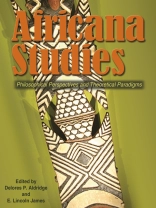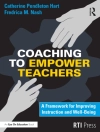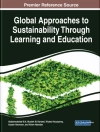The systematic study of the Africana/Black experience emerged in universities in the USA in the late 1960s. As an outgrowth of the Civil Rights and Black Conscious movements, demonstrations occurred on campuses nationwide, giving birth to the new academic discipline. Written by emerging and established scholars and published in the Western Journal of Black Studies over a span of three decades beginning in 1977, the 27 essays included in Africana Studies provide an evolutionary trajectory of the discipline, including theoretical, ideological, and methodological perspectives and paradigms. The primary focus is the African American experience with emphasis on how theoretical and methodological approaches have changed over time as the discipline matured. Topics include pre-colonial literacy and scholarship in West Africa, Black Nationalism, intellectual foundations of racism, and the ideology of European dominance. Articles also address African American personality development, gender relationships, self-identity, masculinity, crime, blueprints for economic development, and digitalization of the discipline. This fundamental collection challenges assumptions, misconceptions, and negative stereotypes within the behavioral sciences, social sciences, and liberal arts fields, and portrays the strength, resilience, and diversity of African and African American peoples.
Tabla de materias
Study Guide
Philosophical Perspectives on Africana Studies in the 1970s
University of Sankore at Timbuctoo: A Neglected Achievement
Historical Dialectics of Black Nationalist Movements in America
Toward the Evolution of a Unitary Discipline: Maximizing the Interdisciplinary Concept
An Ideology for Liberation: A Response to Amiri Baraka and other “Marxists”
Historical Consciousness and Politics in Africa
Intellectual Foundations of Racism
Ideology of European Dominance
Black Studies and Sensibility: Identity, the Foundation for a Pedagogy
Developing Theoretical Paradigms in Africana Studies in the 1980s
Notes on Africentric Theory of Black Personality
Toward a Theory of Popular Health Practices in the Black Community
Theories of Black Culture
Toward an Understanding of Black Male/Female Relationships
Conceptual and Logical Issues in Theory and Research Related to Black Masculinity
Race and Raceness: Theoretical Perspective of the Black American Experience
Consensus and Neo-Conservatism in the Black Community: Theoretical Analysis of Black Leadership
Emerging Paradigm in Black Studies
Re-examining the Black on Black Crime Issue
Africana Paradigms in Practice since 1990
Afrocentricity and the Critique of Drama
Africentricity in Social Science
Beyond Afrocentricism: Alternatives for African American Studies
Blueprint for African American Economic Development
Perception of Power/Control among African Americans
Towards an Africological Pedagogical Approach to African Civilization
Africana Studies in the New Millennium
Towards a Grand Theory of Black Studies: An Attempt to Discern the Dynamics and Direction of the Discipline
Africana Womanism: Flip Side of a Coin
Africana Studies and Gender Relations in the 21st Century
Will the Revolution Be Digitized? Using Digitized Resources in Undergraduate Africana Studies Courses
Sobre el autor
E. Lincoln James served as a Professor in the Edward R. Murrow School of Communication at Washington State University in Pullman, Washington. He was the managing editor of the Western Journal of Black Studies.












